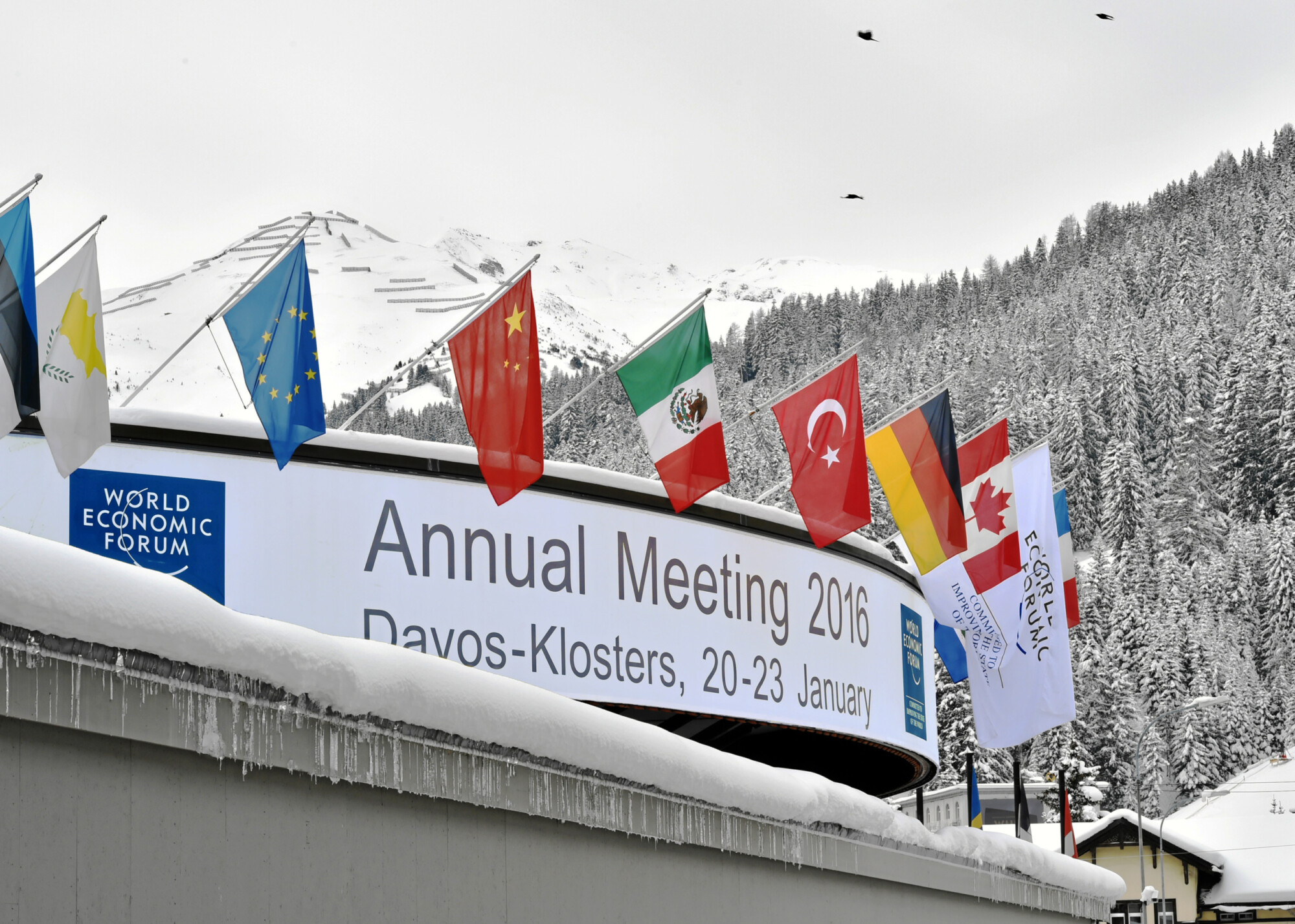WEF 2016: GBC-Education Members Speak Out

Photo by World Economic Forum/swiss-image.ch.
From January 20 – 23, heads of state from across the globe gathered alongside thought leaders from civil society, the public sector, and the private sector to collaborate on the world’s economic outlook during the annual World Economic Forum (WEF). This year, co-chairs Tidjane Thiam, CEO of GBC-Education member Credit Suisse spoke about the global economic agenda, and Satya Nadella, CEO of GBC-Education member Microsoft, spoke on the disruptive role of technology as it paves the way for the “Fourth Industrial Revolution.” Meanwhile, GBC-Education members partook in the global conversation by leading panels in Davos and sharing their thoughts on social media. See what they had to say on the refugee crisis, education technology, and the evolving economy below.
The Global Refugee Crisis:
On day two, Western Union announced that consumers will now have the ability to transfer money across borders which opens reach to over one billion bank accounts. Their global pay program is especially important for those offering crucial support to refugees abroad.
.@WesternUnion announces account payout network, allows consumers to send money to over 1 billion bank accounts #APN https://t.co/mPTjNXZOEA
— WU Newsroom (@WUNewsroom) January 20, 2016
Tayla Bosch, Vice President of Social Ventures at Western Union, reiterated the importance of connecting the global refugee crisis and education. In 2015, only 1.3 percent of all humanitarian aid was used to finance education despite the fact that more than half of the world’s out-of-school population reside in crisis-affected regions.
So true. Need to think holistically about #education and #EconomicOpportunity to meet today’s reality https://t.co/IR7M47Pyb0 — Talya Bosch (@TalyaBosch) January 20, 2016
The following day, GBC-Education Executive Chair Sarah Brown announced that more than 50 companies and partners are contributing $50 million to help Syrian refugee children resume their education. Read Advisory Board member Justin van Fleet’s blog on education in emergencies to learn more.
.$50m from @gbceducation group of #businesses for #SyrianRefugees #WEF16 @SarahBrownUK @UNICEF @NorwayMFA @un envoy pic.twitter.com/4quivO2qUF — Justin W. van Fleet (@justinvanfleet) January 21, 2016
Caitlin Baron, CEO of Speed School Fund, underscored her organization’s pledge to help transition Syrian refugee children back into school through its accelerated learning models.
.@speedschoolfund is honored to be part of this important announcement at #wef16 today. https://t.co/TPIURqD0te — Caitlin Baron (@CaitlinBaron) January 21, 2016
Director-General of UNESCO Irina Bokova rallied behind the 50 companies GBC-Education mobilized to help educate Syrian refugee children during a high-level side event on harnessing innovation in education co-hosted by GBC-Education Executive Chair Sarah Brown and Vice President of Corporate Affairs and President of Intel Foundation Rosalind Hudnell. Read Rosalind’s thoughts on the event. https://twitter.com/rozhudnell/status/692205210157060096Pearson Vice President of Sustainability and Social Innovation, Amanda Gardiner participated in the roundtable and championed prioritizing education for prosperity.
.@Amanda_Gardiner & @TimBozik now joining @SarahBrownUK & @gbceducation members @wef to talk about education for prosperity. #PearsonDavos — Pearson Impact (@PearsonImpact) January 22, 2016
Education and technology:
According to a report published by WEF, in just five years 7.1 million jobs will be lost due to technological advancement, only to be replaced by 2.1 million new jobs in sectors like nanotechnology and robotics. Vikas Pota of GEMS Education called attention to this evolution in the job market and how youth can be prepared for it.
Coinciding with my participation at @Davos, this piece appeared in the Independent paper on the future of jobs by me https://t.co/YzP3hhfcWm
— vikaspota (@vikaspota) January 19, 2016
Bob Moritz of PricewaterhouseCoopers spoke on the transformation of the manufacturing sector due to innovative machine-to-machine products and emerging machine-to-human communications.
Are companies capturing value from the innovations causing the 4th Industrial Revolution? https://t.co/gVAZMJhIe3 #wef #davos16 #CEOSurvey
— Bob Moritz (@Bob_Moritz) January 21, 2016
Education, Inequality, and a Shifting Economy:
Amanda Gardiner co-hosted a panel with Save the Children where speakers discussed how technology and an increasingly globalized economy may exacerbate inequality and “bankrupt children’s lives.”
It was a pleasure & honor to be in great company for such a lively discussion. Thank u @save_children! #pearsondavos https://t.co/F16clcW3kE — Amanda Gardiner (@Amanda_Gardiner) January 21, 2016
Mariéme Jamme of Africa Gathering, GBC-Education #smartinvestment Network member, attended a panel in which UN Special Envoy for Global Education Gordon Brown and Irina Bokova spoke on education and violent extremism. She supported their cause by retweeting Irina Bokova:
Here to convince leaders that #education is a security imperative in urgent need of scaled up funding #WEF #Davos pic.twitter.com/KHcs1j0h1s — Irina Bokova (@IrinaBokova) January 22, 2016
#smartinvestment Network member Salesforce’s Marc Benioff received praise for his support of an inclusive economy. At WEF, children were given the chance to experiment with technology — an important component of education and the fight to end inequality that Benioff argues will ultimately lead to sustainable development.
Surprise visit to @CoderDojo @davos by @iamwill! Hey Will, Thank you for making education your number one value! pic.twitter.com/hCmt8gNRrG — Marc Benioff (@Benioff) January 21, 2016
